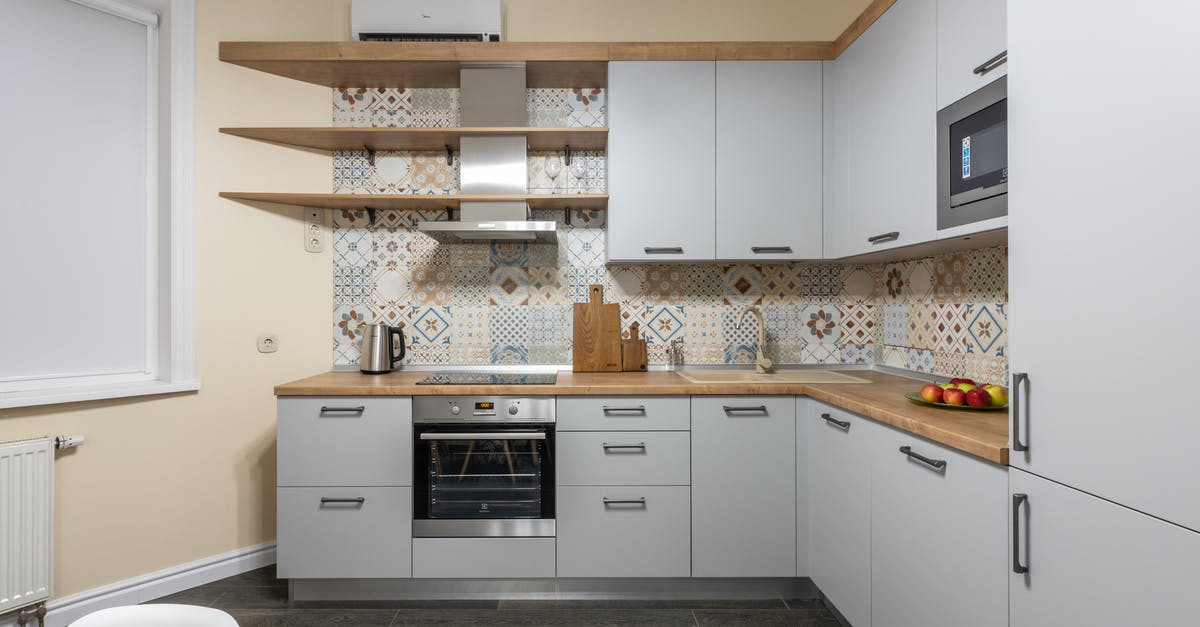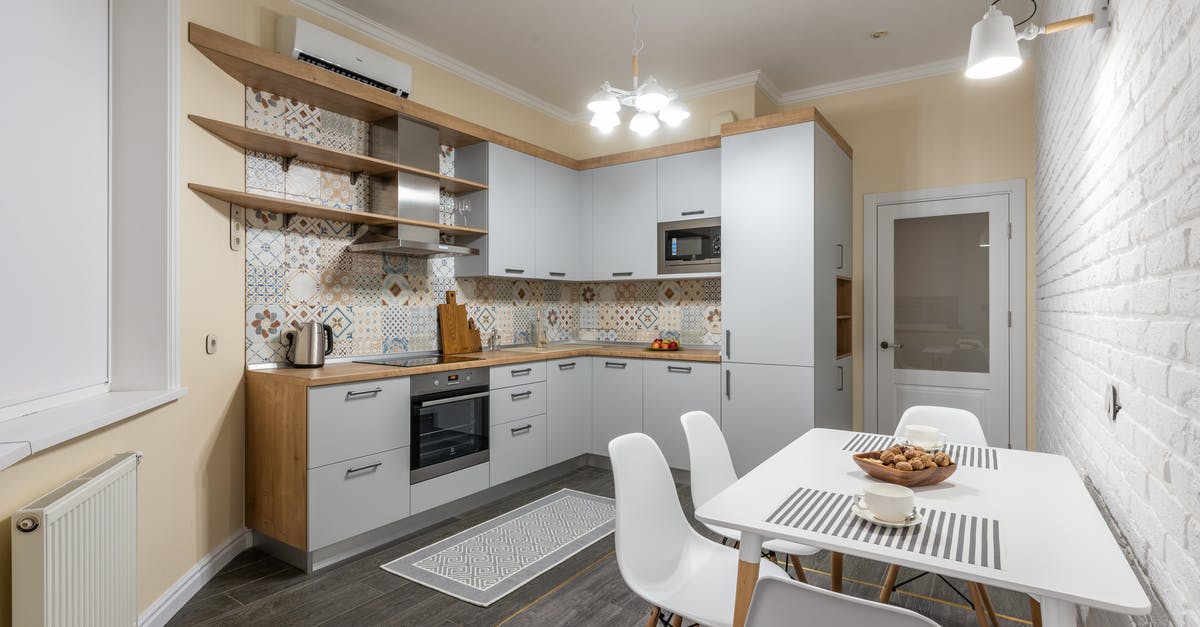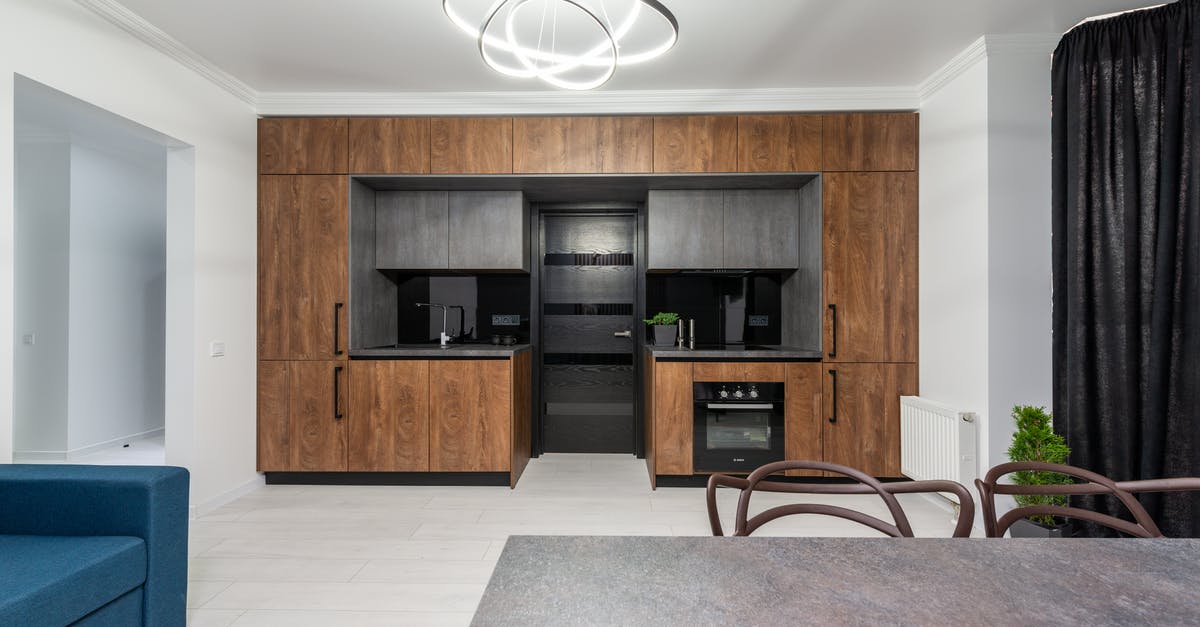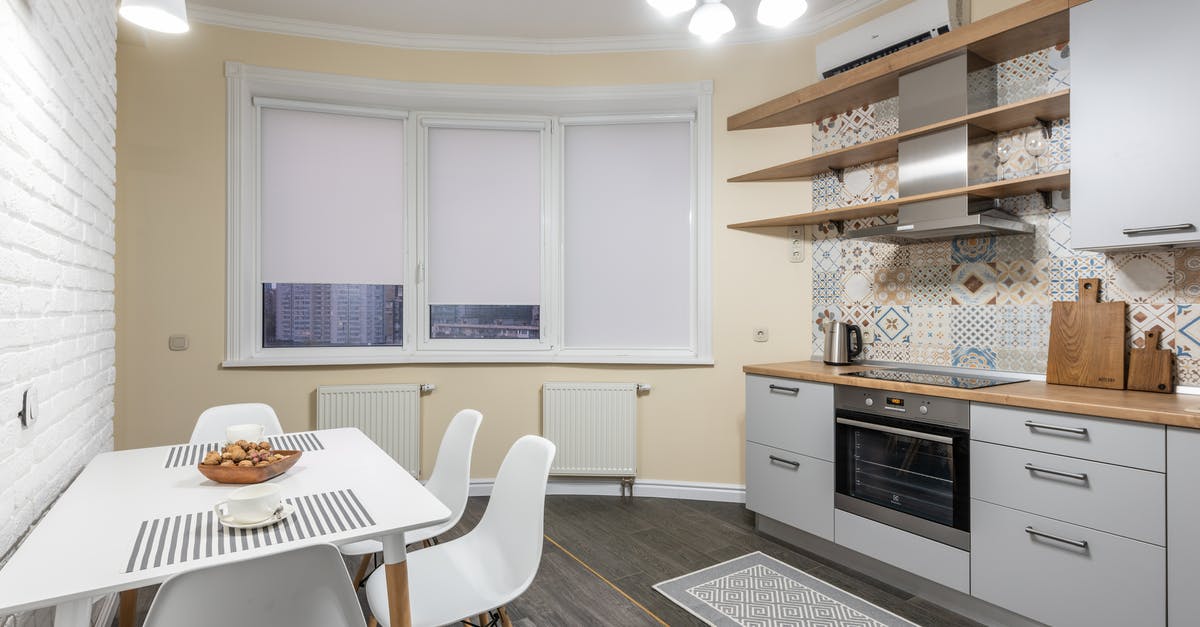Energy usage of an oven

Does it take more energy to heat an oven to 350 degrees from cold or to leave it at 350 degrees for one hour?
Best Answer
I will assume that your question is really "My oven is at 350 degrees, but I won't need it for another hour. Should I leave it on for the hour, or turn it off and then back on when I actually need it?". (This is more physics than cooking, but since you asked the question here, and I like physics...)
The answer is that you will use the least total energy if you turn your oven off, and then reheat it back to 350° at the last minute. Here's why.
If the oven temperature is 350° at the beginning and end of the hour, then the only thing the heating element needs to do during the hour is to replace the heat lost through the walls and insulation of the oven. The higher the oven temperature, the faster heat leaks, so having a lower average temperature (as it cools off during the hour) will reduce the heat leakage, and thus reduce the energy.
Calculating exactly how much energy you'd save by doing this would be pretty complex, although my guess is the answer would be "not all that much, electricity-cost-wise".
Edit (to add way too much information on this not-all-that-important topic, but as I said I like physics):
Think of your oven as a bucket with a small hole at the bottom. Fill the bucket with water (heat the oven) and the water (heat) will leak out the hole (insulation, door, etc). The deeper the water (higher the temperature), the faster the leak (rate of heat loss).
Say the bucket is full, and you need to have the bucket full at the end of one hour. Since you want to save water (heat/electricity), do you want to keep adding water to keep the bucket full (leave the oven on), or stop (turn the oven off) and refill it at the end of the hour (turn the oven back on)?
The key is the leaking water: whatever amount leaks is exactly what you'll have to put back into the bucket. So, the less that leaks, the less you have to put in. Since the lower the water level, the less that leaks per time; keeping the bucket full (leaving the oven on) will always leak more total water (heat/electricity) than if you let the bucket drain and then refill it (turn the oven off, and then on at the end of the hour).
The size of the leak (how good the insulation is), and the size of the bucket (how much heat mass the oven has) will affect how much water (electricity) you save, but in the end you will always save at least some water (electricity) by stopping and then refilling at the end of the hour (turning the oven off, and then on).
(OK, I'm done.)
Pictures about "Energy usage of an oven"



Quick Answer about "Energy usage of an oven"
On average, the oven uses about 2000 watts or 2 Kilowatts per hour to run. The range may fall anywhere between 1000 watts to 3500 watts. The electricity consumption is different for different sizes and models of the oven.How much energy does a oven use?
Most electric ovens draw between 2,000 and 5,000 watts, with the average electric stove wattage coming in at around 3,000 watts. So how much energy does an electric stove use per hour? Assuming an electricity rate of 12 cents per kilowatt-hour (kWh), a 3000-watt oven will cost you about 36 cents per hour at high heat.How many kWh do ovens use?
Key takeaways about powering an oven and stove On average, electric stoves use 1,000 to 3,000 watts of electricity. Ovens use 2,000 to 5,000 watts of electricity on average. Using a stove and oven for a combined 7 hours per week will use about 1,022 kilowatt-hours (kWh) of electricity per year.How much energy does an oven use UK?
They say, \u201cElectric cookers use around 0.87 kWh of electricity per hour \u2013 if you cook for 2hrs a day 5 times a week, it will cost you around \xa31.39 to cook a week's worth of meals for your family. Costs will vary depending on the cooker you have, how often you use it and how energy efficient it is.\u201dEnergy Hog Oven vs Toaster Oven
More answers regarding energy usage of an oven
Answer 2
It will depend on your oven's insulation and its efficiency. But it will likely be pretty close. The way to figure this out for your specific oven, would be to first time how long it takes for your oven to preheat. Then wait by your oven for 15 minutes with a stop watch and turn it on when you hear your oven click on, and stop it when it stops heating. Take the total amount of time measured, multiply by 4 and you should get a reasonable estimate of which uses more energy.
Answer 3
It would depend on the oven.
More insulation would equal less heat loss.
More thermal capacity more energy to heat. Most of the thermal capacity is in the metal and glass. The air alone in the oven does not take much to heat. More insulation has some more thermal capacity but by its nature insulation is low thermal capacity.
It would be close. Rather than try and calculate measure. Put a meter on the line or just time it. An oven has an on off controller and some you can hear the click. Or you can just observe the element. During heating it is on the whole time. Watch the oven for an hour and time how long the element is on.
A cheap oven with thin metal and little insulation will use more electricity to stay on.
A higher end well insulated oven is going to be a close call.
Sources: Stack Exchange - This article follows the attribution requirements of Stack Exchange and is licensed under CC BY-SA 3.0.
Images: Max Vakhtbovych, Max Vakhtbovych, Max Vakhtbovych, Max Vakhtbovych
